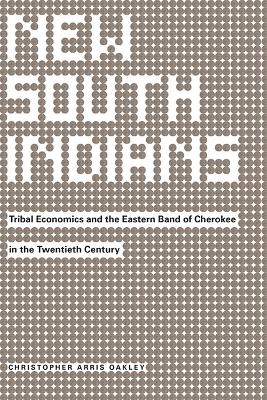The Eastern Band's economic decisions of the 1900s did not occur in a vacuum. In fact, these decisions reflected regional changes and the broader development of the post-Civil War American South. The Eastern Band of Cherokee Indians formally incorporated under North Carolina law in the 1880s, and their economic policies evolved as the country experienced Jim Crow segregation, the Great Depression, World War II, and the Civil Rights Movement. During the twentieth century, members of the Eastern Band embraced an economic strategy partially based on tourism. In the late 1900s, they pursued policies that facilitated the rise of casino gaming.
Divided into five chapters, Christopher Arris Oakley's New South Indians traces the economic development of the Eastern Band throughout the twentieth century to better contextualize the Cherokee Tribal Council's 1990s decision to incorporate gaming into the nation's economic strategy. In building his contextual framework, Oakley discusses the interdependent relationships forged by Cherokee Tribal Council members with various public and private entities in order to protect their land, manage their resources, and advance the well-being of their nation's economy and community.New South Indians also situates the story within the history of the American South. Thus, the saga of the Eastern Band's struggle for economic autonomy and financial stability throughout the stormy twentieth century can be seen as an integral part of the historical account of western North Carolina.
A multifaceted glimpse into a vital aspect of contemporary southern history, New South Indians is sure to appeal to a wide variety of readers, from those interested in Native American culture and the history of the modern South to those captivated by economic history.
- ISBN13 9781621904045
- Publish Date 31 July 2018
- Publish Status Active
- Publish Country US
- Imprint University of Tennessee Press
- Format Hardcover
- Pages 277
- Language English
